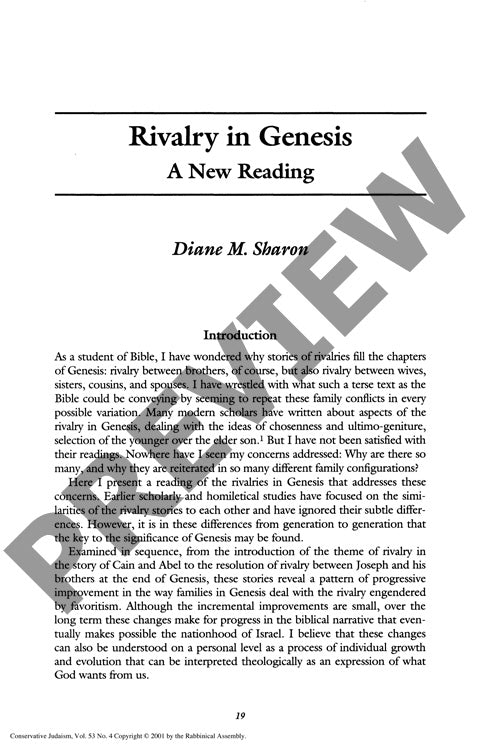Rivalry in Genesis a New Reading
Couldn't load pickup availability
Biblical rivalry narratives in Genesis reveal a striking evolutionary pattern: families learn to handle divine favoritism with increasing wisdom and grace across generations. From Cain's murder of Abel to Joseph's reconciliation with his brothers, these accounts show a clear progression away from violence toward cooperative resolution. Through sequential analysis and close Hebrew linguistic examination, the pattern emerges across multiple relationship types - sibling, spousal, and co-wife conflicts - each contributing distinct elements to this developmental arc. The rivalries advance from murder to geographic separation (Sarah and Hagar), then to uneasy coexistence (Jacob and Esau), strategic bargaining (Rachel and Leah), and finally achieving forgiveness and collaboration (Joseph and his brothers, Moses and Aaron). These narratives serve as paradigmatic lessons about human responses to apparent divine favoritism, demonstrating that while individuals cannot control divine selection, they can master their reactions to it. This progression from fratricide to fraternal cooperation laid the theological groundwork for Israelite nationhood, enabling the Exodus and Sinai revelation. The resolution pattern ultimately points toward a messianic vision of unity, as echoed in Ezekiel's prophecy of reunifying the divided kingdoms through Joseph and Judah's reconciliation.

More Information
-
Physical Description
-
Publication Information
Published 2001
ISBN
-
Publication Credits
Diane Sharon

